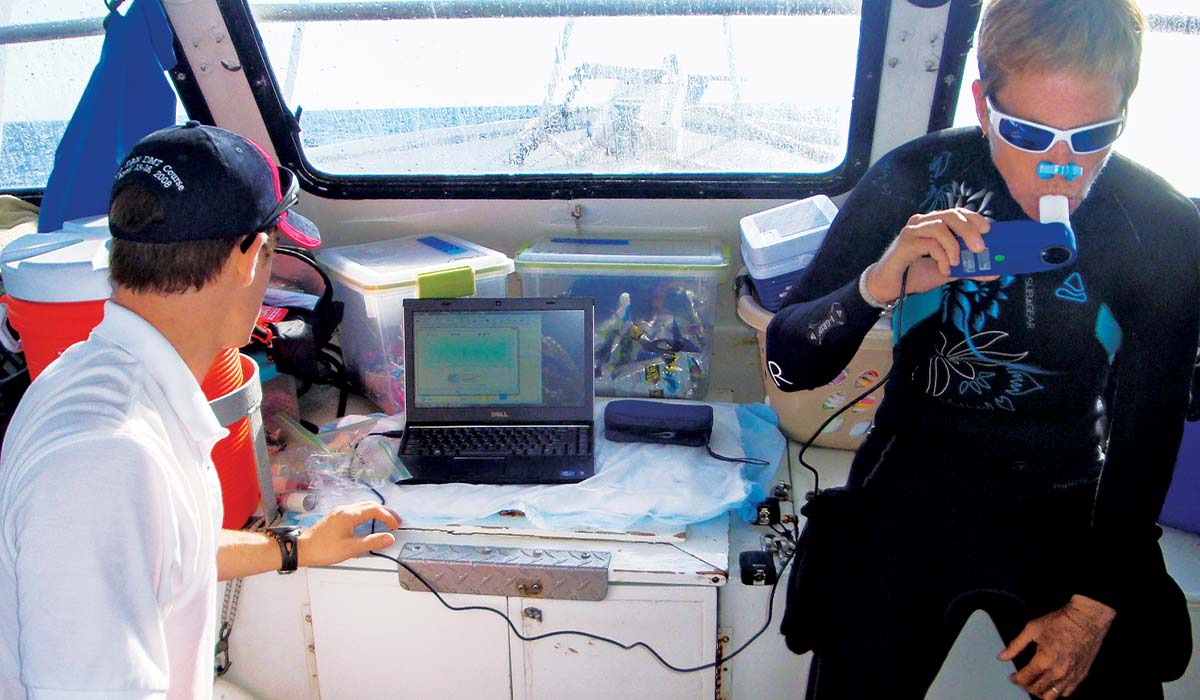TLDR: this is all pretty deep in the weeds, so just skip it.
Note that the quote from the study carefully says "... series of three dives, each with 2.3 % PDCS ..." If we interpret this literally, that the dives in this scenario
by definition all have 2.3% PDCS, then the dives are indeed statistically independent (by definition - since nothing at all can condition the PDCS of any of the dives, never mind what might have happened on an earlier dive). So given that assumption, the calculation (which requires independence) is appropriate.
But what I asked is "is the probability of getting bent on the second dive really independent of whether you got bent on the first dive a few hours earlier?" I think the actual probability of getting bent on a later dive does depend on whether or not you just got bent on an earlier dive the same day. If true, then the dives in a repetitive series are not statistically independent. That's all I was getting at in my earlier post.
For the record, I'm not criticising the study, the methodology, the research program, the investigators, any of it. My stats persona just hickupped at the implicit assumption of and requirement for independence when my gut says they're not.
It works out the same. There's a 2.3% chance of DCS on dive 1, a 2.3% chance on dive 2 given that you make it, but only a 97.7% chance of making it, so a net 2.2% chance. Etc.: 2.3 + 97.7*2.3 + 97.7*97.7*2.3 = 6.7%
The 1-0.977^3 is an equivalent shortcut.
Exactly. I was fleshing out the calculation as the quote described it.
And thanks for correcting my slip of the brain - I wrote (1 - 3 * 0.977). That's a ludicrous number for a probability.
My take was that @TooCold meant the residual loading on dive 2 increases the risk. Which it might, but there are other factors that might override that; e.g., rusty skills on dive 1, but better control on 2 & still better on 3.
I agree, lots of other factors. But I wasn't thinking of the residual loading, but the case where dive 1 results in DCS (since the described scenario models dives with a binary outcome: bent or not bent). I didn't make any assumptions about the direction of the influence, but not surprisingly I do indeed think that continuing to dive right after getting bent increases the risk.





